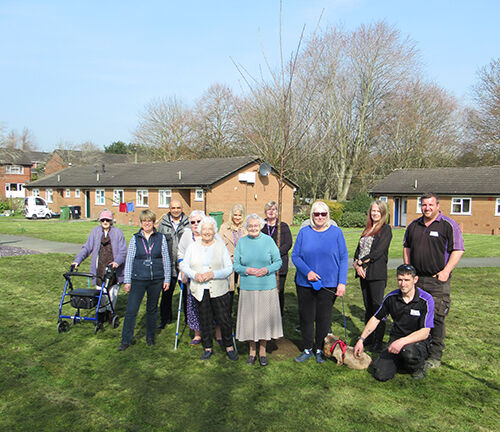This Update includes the following

Knowing Our Homes – Local Authority Housing Survey
The Knowing our Homes survey is part of a programme of work developed by the NHF in response to the Better Social Housing Review which aims to establish a shared, standardised approach for gathering and using information about the condition of social homes and about the residents who live in them. This should also help social landlords to meet new requirements emerging through the Consumer Standards which set higher expectations for how landlords gather and use information about their homes and their residents.
Although the Better Social Housing Review was initially focused on the housing association sector, the local authority sector has committed to support the work emerging from the review to make sure there is a shared approach across the whole social housing sector. The Local Government Association (LGA), Association of Retained Council Housing (ARCH), National Federation of ALMOs (NFA), and Councils with ALMOs Group (CWAG) are all working together to achieve this and make sure the whole council housing sector is represented.
A survey was sent out to stock retaining local authorities, and local authorities with ALMOs in October 2023. This is the first stage of the work which identifies how local authorities are currently gathering and using data. 49 local authorities responded to the survey (around 30 per cent of local authorities with housing stock), managing around 599,000 social and affordable local authority homes across England (around 38 per cent of the total stock).
Snapshot of Survey Findings
- Three quarters of respondents to our survey have made significant changes to the way they monitor and work to improve the condition of the homes they manage within the last year. This includes, for example:
-
- Reviewing damp and mould policies and procedures, implementing training, creating new teams.
- Changing stock condition programmes, for example moving to a 100% survey, reducing the length of the rolling survey or undertaking a full assessment of stock condition.
- Reviewing and developing asset management strategies.
- Investing in new asset management or property information management systems. Developing processes to cross-reference data sources (e.g. property archetype, repair and cases of damp and mould) to better direct resources and identify issues.
- Reviewing processes for identifying stock condition between surveys, for example adding requirements to the gas servicing contract to identify property condition.
- Increasing staffing resources for quality assurance, stock condition and data management.
- Accessing funding for thermal improvement/ decarbonisation work to support quality of homes.
- Introducing tenancy audits, or changes in frequency or type of audit.

- The majority of respondent have – or are moving towards – a rolling stock condition survey where they survey 100 per cent of their homes. This will support them to the meet the requirements within the Regulator’s Consumer Standards to have ‘an accurate, up to date and evidenced understanding of the condition of their homes that reliably informs the provision of good quality, well maintained and safe homes for tenants.’ The information gathered as part of these surveys differs across respondents, but around 40 per cent gather information on energy efficiency of properties (e.g. RdSAP).
- The majority of respondents report having a process for proactively checking the condition of homes between stock condition surveys. This includes, for example, through tenancy checks or audits, and asking staff who visit the home to report issues. One of the key areas of work for many is making sure IT systems can effectively record all the information about a home and the people who live in it, and that data quality is good. Around a third of respondents would recommend the IT or data systems they would use, suggesting that there is work to be done in this area.
- Having a good knowledge of the people who live in homes is a key requirement in the new Consumer Standards; to make sure that services are tailored and equitably delivered. Nearly all respondents in our survey collect, store and retain data about tenants. This includes, for example, information on household make-up, relevant health issues or disabilities, and communication needs or preferences. Nine out of 10 respondents actively update the information they hold on tenants, for example after a repair or during a tenancy audit. Members are actively working on the processes that they use to make sure they can demonstrate they are equitably delivering services.
- The collection of data on tenants is an area that members are working on, and where good practice sharing would be beneficial; particularly thinking about GDPR principles, how (and what) data is stored and kept up-to-date, and how it is used. We will continue to work with the National Housing Federation and their members to share good practice in this area.
CWAG Consultation Responses
Provision of information to tenants: Direction to the Social Housing Regulator on tenants’ rights and complaints
CWAG has responded to the DLUHC consultation on a new direction to the Social Housing Regulator on tenants’ rights and complaints. Whilst we agree that landlords should be providing this information to their tenants, in our view the proposals duplicate arrangements already set out in the RSH Consumer Standards and Ombudsman Statutory Complaints Handling Code. Overlaying a further set of very similar requirements and additional reporting that duplicate these arrangements will add to the complexity, regulatory burden and costs whilst providing little in the way of additional or new information for tenants.
Ombudsman Complaints Handling Code 2023
CWAG also responded to the Ombudsman Complaints Handling Code consultation 2023. The new statutory Complaints Handling Code forms part of wider changes to social housing regulation set out in the Social Housing (Regulation)Act 2023. Whilst the code is broadly similar to the existing code, our consultation response flagged up some issues including changes to response times and the need for clarity around the interface of these arrangements with those of other regulators.
Recent Publications
ALMOs top half year local authority TSM results – Housemark research
An interesting piece of research by Housemark on behalf of the National Federation of ALMOs makes very positive reading for anyone interested in the effectiveness of the ALMO management model. ALMO performance against all 22 TSMs at the half-year point in September 2023 was favourable when compared to local authorities generally. In addition, the report also looked at the data for former ALMOs where management is now back ‘in house’ suggesting that ‘housing management performance settles into that less favourable cost and performance pattern of stock retained local authorities’.
Housing Ombudsman Report – Insight on service charges and the Ombudsman’s jurisdiction – Published December 2023
This latest insight report considers complaints relating to service charges. The report sets out guidance around the complaints the Ombudsman might consider and those which are within the remit of the First Tier Tribunal or Tribunal and Leasehold Advisory Service (LEASE).
Whilst the level and cost of service charges is outside the Ombudsman’s jurisdiction, the way the charge has been calculated would fall within the Ombudsman’s remit. The report highlights that the importance of ensuring charges are as set out in tenancy agreements and leases, as opposed to what it is assumed is in these agreements.
Other issues include fairness and transparency, ensure that any redress is applied to everyone affected, not just those who have been party to the complaint. Cases involving measures such as non-disclosure agreements or pressure on residents to sign revised agreements are highlighted as unacceptable.
Where residents raise complaints about the standard of service, the onus will be on the landlord to demonstrate that the standard was of satisfactory quality for example through evidence of spot checks and monitoring.
Housing Ombudsman - Complaint Handling Failure Orders July – September 2023 (Published November 2023)
Given the increasing use of Complaint Failure Orders (CFOs) by the Housing Ombudsman, this report examining cases between July and September 2023 provides useful insights into current issues and complaints handling weaknesses in the sector.
In the three months under review there were 51 CFOs issued, the highest number ever issued in a single quarter. Of these 38 (74.5%) were type 1 relating to unreasonable delays by the landlord in accepting or progressing a complaint. 12 cases (23.5%) were type 2 involving unreasonable delays in providing information to the Ombudsman and 2 cases (4%) involved a failure by the landlord to comply with membership obligations of the Ombudsman scheme. In the same period, 14 landlords failed to comply with the requirements set out in the issued CFO.
Social Housing Partner Toolkit
This toolkit includes details of the latest phase in the Governments ‘Make things Right campaign which aims to ensure social housing tenants know their rights and how to make a complaint in terms of repairs, disabled adaptations and help with anti-social behaviour. The campaign seeks to address barriers which hold people back from raising issues with their landlord.
The ‘toolkit’ comprises a range of publicity materials and formats including posters, social media videos, leaflets, draft copy for use in newsletters and blogs as well as a briefing for use with staff working with people who live in social housing.
Diary Date Reminder - Finance and Business Planning Workshop
Steve Partridge – Savills Director of Housing Consultancy will be leading this event for finance officers and others with an interest in HRA strategy and business planning. The event is a free event that is open to CWAG members. To book a place, contact the CWAG Policy Officer.
